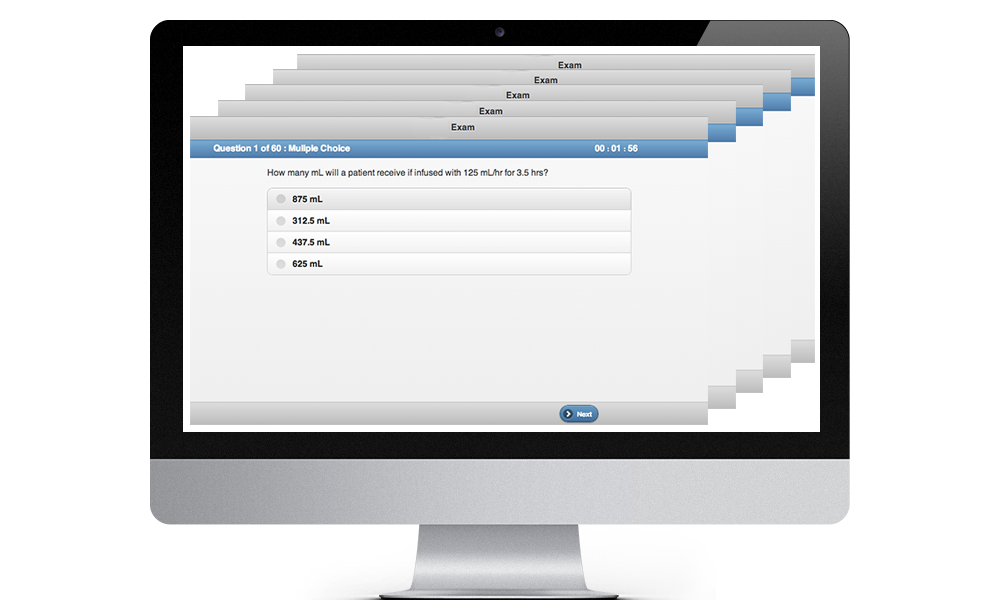BLS Practice Test
Question 1 |
30 to 1. | |
30 to 2. | |
15 to 1. | |
15 to 2. |
Question 2 |
breathing, airway, chest compression. | |
chest compressions, airway, breathing. | |
breathing, airway, chest compressions. | |
airway, breathing, chest compressions. |
Question 3 |
Use a smaller adjunct. | |
Leave the airway in place but be cautious in case of vomiting. | |
Use a larger adjunct that does not penetrate as deep. | |
remove the airway and ventilate without an adjunct. |
Question 4 |
perform back blows to dislodge the obstruction. | |
perform abdominal thrusts to dislodge the obstruction. | |
attempt to remove the obstruction with your fingers. | |
perform 5 cycles of the foreign body obstruction maneuver. |
Question 5 |
2 rescuers. | |
1 rescuer. | |
4 rescuers. | |
3 rescuers. |
Question 6 |
check for 30 seconds. | |
check for 3 seconds. | |
check for at least 5 seconds but no more than 10. | |
wait for the AED to analyze the heart rate. |
Question 7 |
The W-C clamp. | |
The C-C grip. | |
The E-C clamp. | |
The E-W grip. |
Question 8 |
They may sound like a snort or grunt. | |
They usually happen at a slow rate. | |
They are always forceful and make the patient's head move. | |
They look as if a patient is drawing in air rapidly. |
Question 9 |
take a regular breath and seal your lips around the victims mouth. | |
take a deep breath and seal your lips around the victims mouth and nose. | |
take a shallow breath and seal your lips around the victims mouth and nose. | |
take a deep breath and seal your lips around the victims mouth. |
Question 10 |
at the patients head. | |
behind the first rescuer. | |
on the patients side. | |
by the patients feet. |
|
List |
Basic Life Support Practice Exam
Practice for the Basic Life Support (BLS) exam using our database of BLS questions. Take full-length BLS practice tests or focus quizzes, and track your progress to identify weak knowledge areas. Our subject matter experts have written the BLS practice test questions to mimic the content and test format you will see on the real BLS exam. Click below to take a BLS practice test and sample our proven method of BLS prep.
Our BLS practice test content is available entirely online, allowing unlimited access to the testing center any time, day or night, for the length of your subscription. The BLS testing platform randomly draws from our question database, so you can take unlimited, unique BLS practice tests. Your BLS practice test will be graded instantly, so you can review areas that need improvement. Our tracking system will let you track your progress over time so you can see improvement and know when you are ready for the real BLS test. We are so confident in our BLS preparation method, we offer a 100% pass guarantee.






